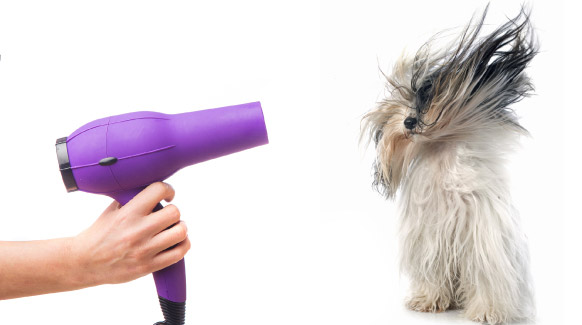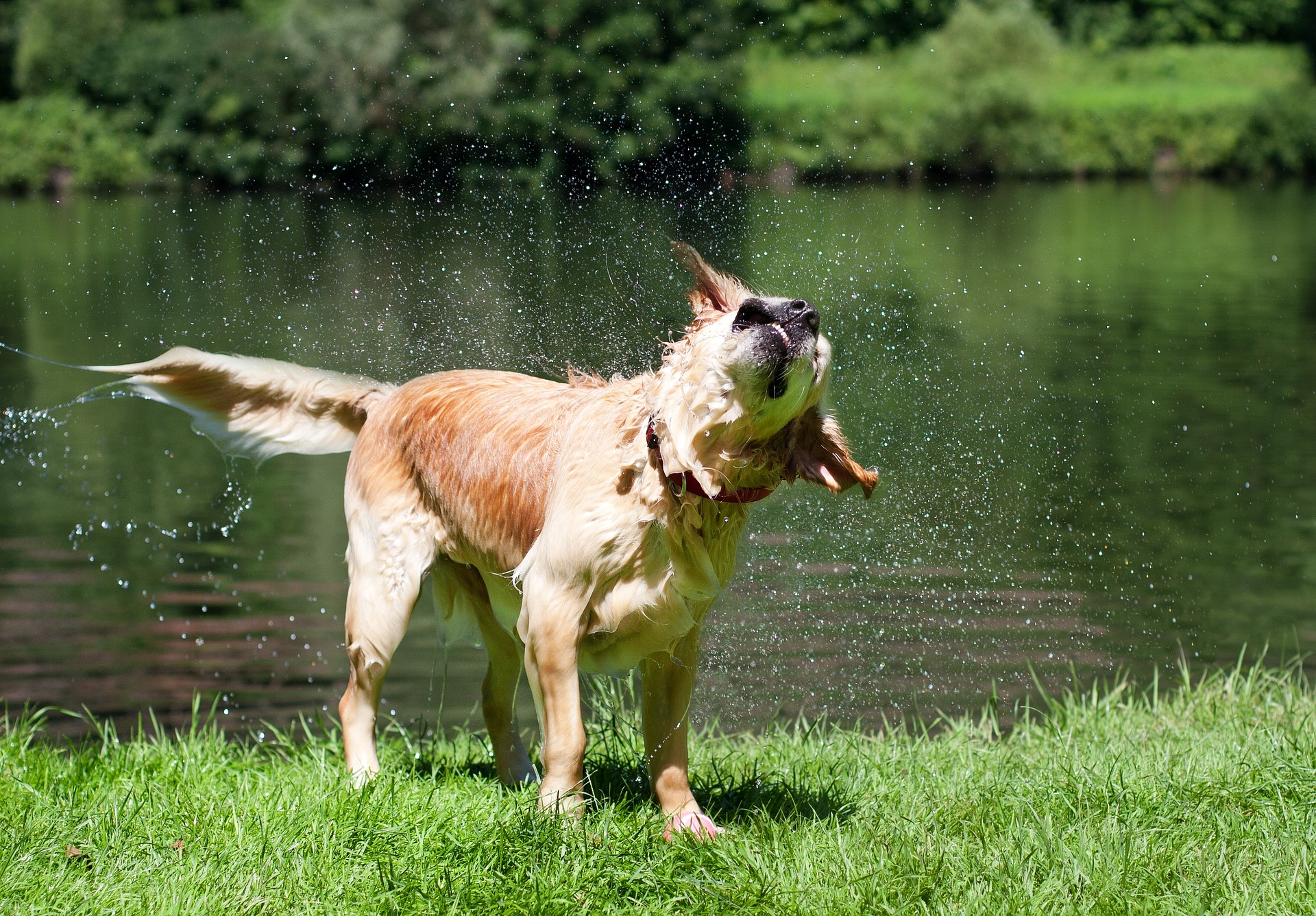Table of Contents
It is not uncommon to hear dog owners ask why is my dog shaking and panting. Like many other canine behaviors, dogs’ shaking is so ordinary that we generally fail to even question it in the first place. But the question is why do dogs shake?
In this post, you’ll discover 5 main reasons why dogs shake and the meaning of their shaking.
-
Dogs Shake to Blow-Dry:

Well, this is the most obvious reason. All dogs shake after they have been wet. The reason is that shaking is, surprisingly, a very efficient blow-dry. As a matter of fact, wet dogs can shake off 70 percent of the water on their fur in just four seconds. Impressive right? Thus, while shaking certainly isn’t great for our bathrooms, it certainly is far more effective than our attempts to towel dry our dogs.
Our canine companions can even shake debris off themselves. Such a disappointment we, humans, can’t shake off things, too!
-
Dogs Shake Off Stress:
Shaking is considered as a defense mechanism dogs employ against stress. Thus, if your dog gives a whole-body shake for no obvious reason, chances are that it’s just trying to alleviate tension. Let’s “Shake It Off”, too!
Dr. Stefanie Schwartz, a board certified veterinary behaviorist in the Orange County, California, states: “If a dog stands still while you’re petting him, but shakes his body after you stop, this could mean he was a bit stressed from the contact,” Schwartz says. “Perhaps the dog found you intimidating, and the shaking would be an anxiety-releasing mechanism in this case.”
-
Dogs Shake Because They Feel Uncomfortable:
Did you notice your dog shaking while scratching? If yes, chances are that it has irritations or uncomfortability. As a matter of fact, if not emotionally uncomfortable, being physically uneasy could be a reason why dogs may shake their fur. For example, if the problem lies in your dog’s ears, you should watch out for excessive head shaking.
In fact, irritated dogs often shake their heads to provide temporary relief. However, if the reason is skin related, repetitive whole body or member shaking would certainly be more common. If the problem is ear-related, the canine shakes mostly its head, which leads to the 4th cause of dog shaking.
-
Ear Infections
Like humans, dog can get ear infections. Some breeds, however, are more prone to ear problems: Basset Hounds, Cocker Spaniels, Labrador Retrievers, and Golden Retrievers. Shaking related to ear infections almost always happen after a recent bath or if the dog has been swimming. In this case, the dog usually shakes its head instead of its whole body.
Although dogs do so to get temporary relief, the shaking can lead to more serious problems, for example an ear hematoma, causing a blood vessel in the ear to burst and bleed into the space between the ear cartilage and skin.
-
To Wind Down
Some dogs shake their fur after a long play session or intense activity. In this case, the fur shake may not be a sign stress, but a suggestion of calm and winding down. According to Dr. Schwartz, “In certain circumstances, a fur shake can actually relax the muscles and even signal that he’s feeling friendly, but less interested than before,” She continues to say: “It’s not uncommon to see your dog shake his fur to let friends know that playtime has been fun, but he’s done.”
To conclude, while shaking generally is a very normal and healthy behavior among dogs, it’s important to understand the difference between fur shaking and trembling. In this context, Dr. Schwartz said: “The body shake is a normal behavior in dogs, but shaking is not”.
Thus, if your dog is trembling or in case the shaking persists, it is necessary to pay a visit to the vet to rule out any underlying medical conditions. If you’re a dog owner, then, you certainly ought to pay close attention to your dog’s behavior.
If you know other reasons why do dogs shake, kindly comment and share them with our readers.



